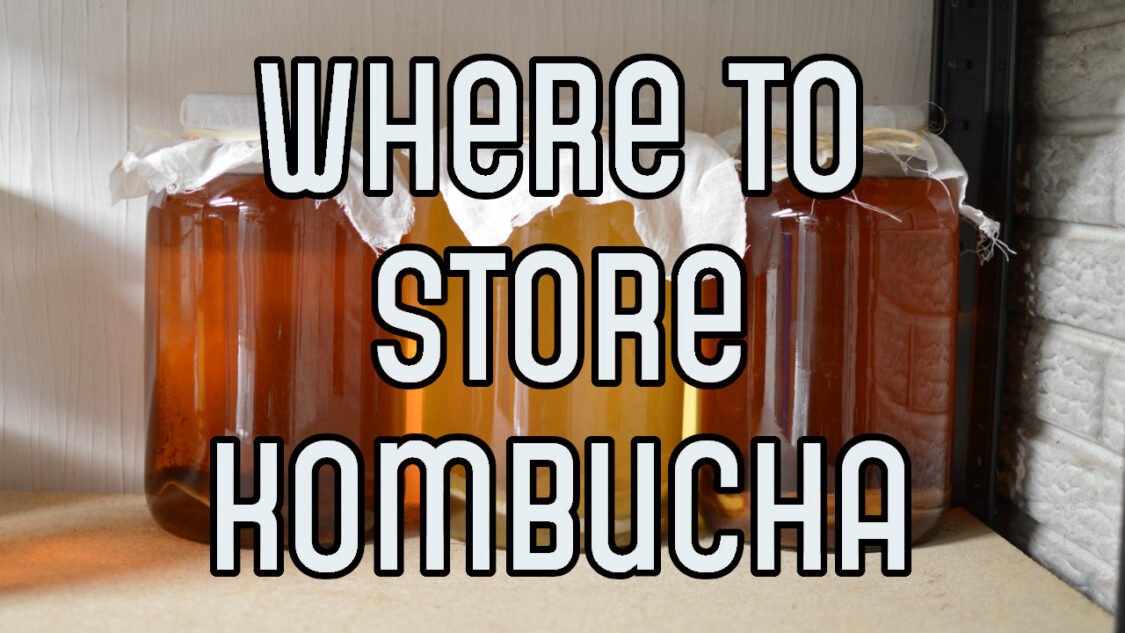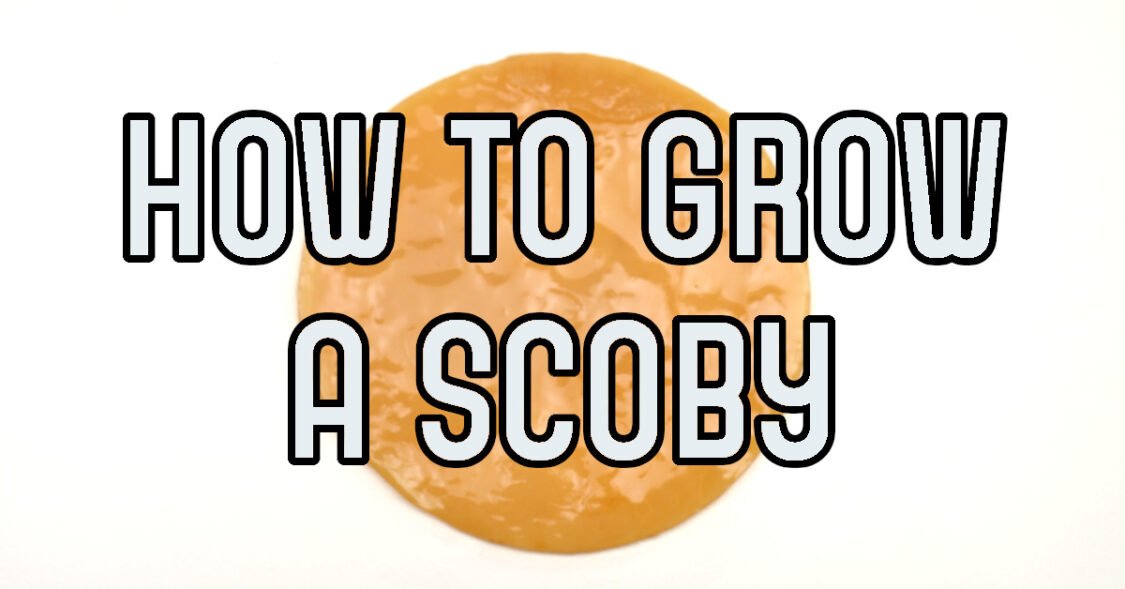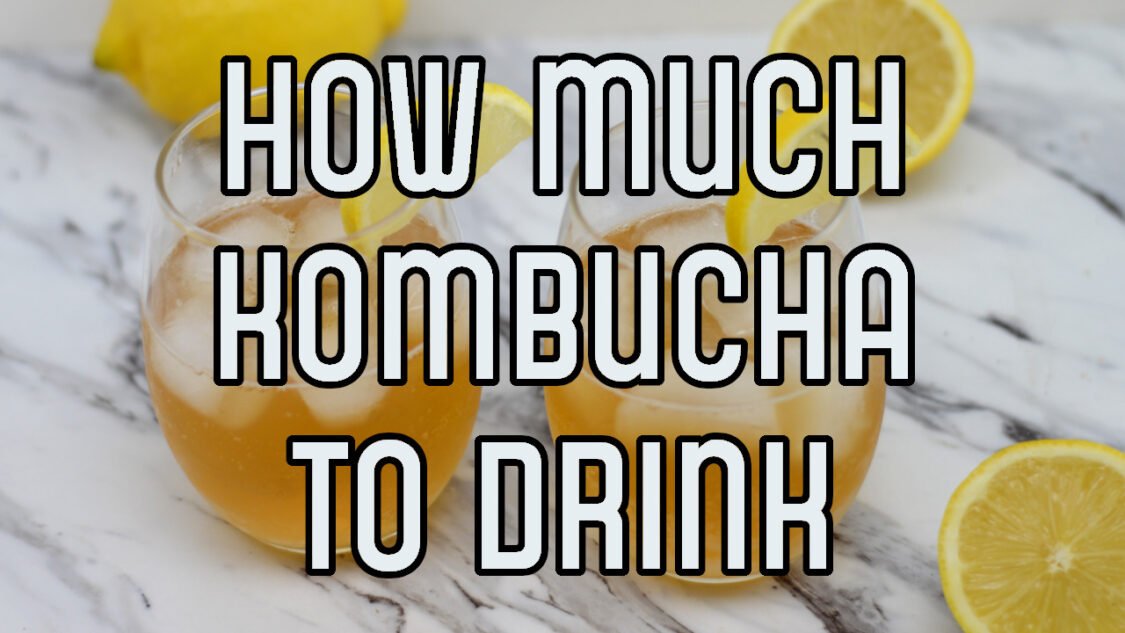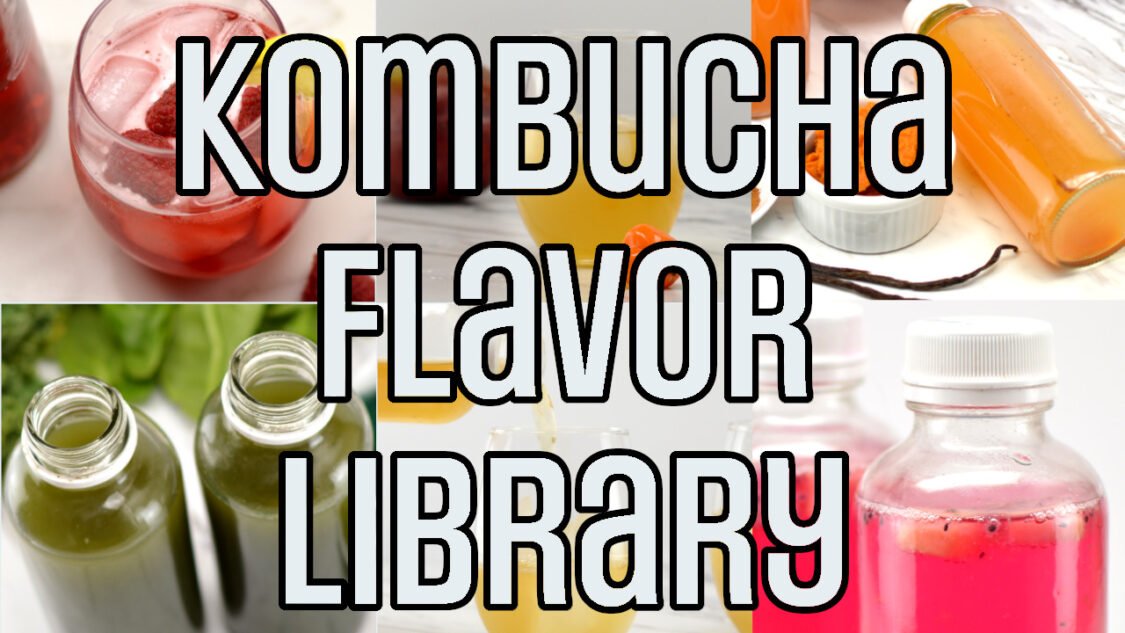Does Kombucha Have Caffeine?
Kombucha is made from tea and therefore contains caffeine. But just like the sugar and alcohol content, how much caffeine is in kombucha depends on the ingredients used and fermentation conditions.
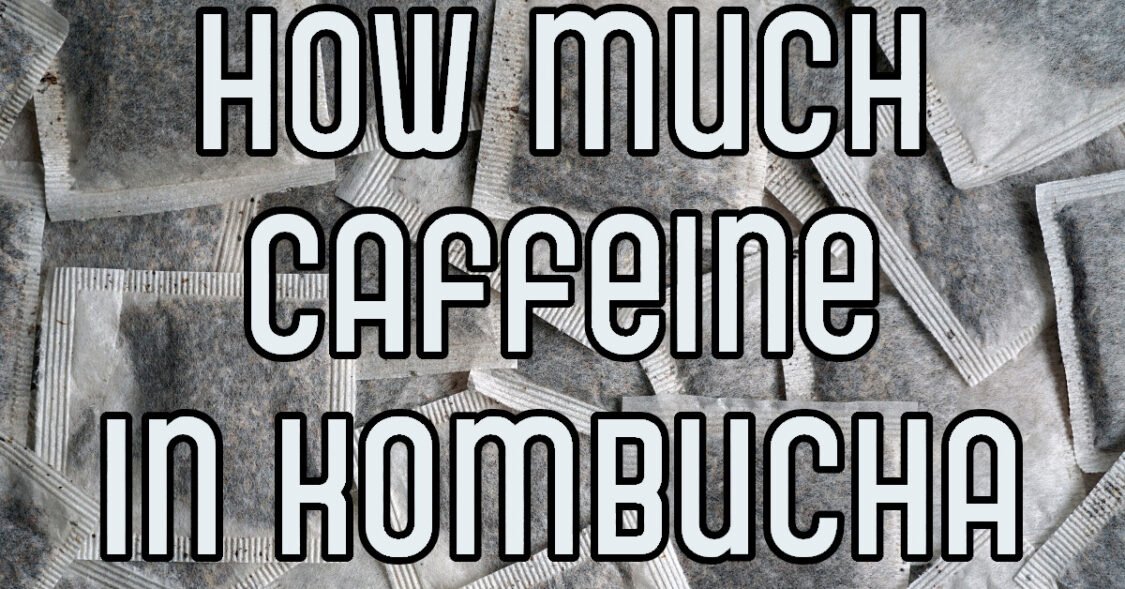
Yes, kombucha does have caffeine which is naturally occurring in the tea kombucha is made with. Although caffeine is naturally found in kombucha, it is minimal, averaging around just 15 mg per serving which is hardly noticeable to even those sensitive to caffeine.
What is Caffeine?
Caffeine (C8H10N4O2) was first isolated by the German chemist Friedrich Ferdinand Runge in 1819.
Caffeine is an alkaloid– a class of naturally occurring organic compounds that often contain basic nitrogen atoms. Alkaloids are produced by various organisms, including plants, animals, bacteria, and fungi. Many alkaloids have pharmacological effects on humans and other animals, and they are often known for their physiological activities.
Examples of alkaloids include caffeine, morphine, nicotine, quinine, and cocaine. These compounds can have a range of effects on the nervous system and other biological processes.
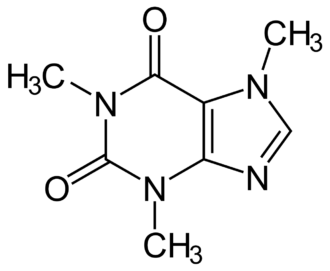
Caffeine has been consumed worldwide for centuries. Due to its state-altering and possibly addictive properties it is considered a drug; however, it is by far the most widely accepted and innocent of all drugs.
Caffeine is found in many plants, including coffee beans and tea leaves, kola nuts and cacao plants. In humans caffeine stimulates the central nervous system, heart rate, and respiration, has psychotropic (mood altering) properties, and acts as a mild diuretic.
Caffeine consumption results has been found to increase the following in people that consume it:
- Increased mental alertness and mental performance
- Increased energy level
- Increased alertness
- Anxiety and Stress
- Insomnia and jitteriness as high doses
A “normal” dose of caffeine is generally considered to be 100 mg, which is roughly the amount in a cup of coffee. However, more than half of all American adults consume more than 300 mg of caffeine every day, which makes it America’s most popular drug.
- A cup of brewed coffee: 96 mg
- A cup of decaffeinated coffee: 2 mg
- A cup of tea: 47 mg
- A can of regular cola: 22 mg
- A can of energy drink: 29 mg
- Single serving of kombucha 15 mg (1/2 bottle)
What is kombucha?
Kombucha is a fermented tea beverage of East Asian origin that has been made for centuries in Eastern Europe and Russia. Kombucha is made by mixing:
- Brewed tea (black, white, or green, etc.)
- Sugar (typically white table sugar)
- A SCOBY (Symbiotic Culture Of Bacteria And Yeast)
The mixture is then allowed to ferment for 7-30 days. The fermentation process produces acetic acid that gives kombucha its distinctive taste. It also creates a probiotic-rich drink that contains many health benefits.
Kombucha contains many different types of beneficial bacteria, including:
- Bifidobacteria
- Lactobacillus
- Acetobacter
Why Does Kombucha Have Caffeine?
Since one of the main ingredients kombucha is typically brewed with is tea (green, black, white, or oolong) and the teas naturally contain caffeine, this leads to kombucha also containing caffeine.
However, the caffeine content of finished kombucha is not equal to the caffeine in a similar amount of brewed tea. In fact, kombucha only has on average 1/3 the amount of caffeine as the source tea it was brewed from. That is a 2/3 reduction in the caffeine content as a result of the fermentation process.
Before we dig into how much caffeine is in kombucha, let’s look at how much caffeine is in some of the teas used to brew kombucha.
Caffeine Content of Various Raw (before brewing) Tea Leaves:
| Type of Tea | Caffeine Content (MG/G) |
| Green tea | 35 mg/g |
| Black tea | 29 mg/g |
| White tea | 27 mg/g |
| Oolong tea | 20 mg/g |
| Pu-erh | 22 (mg/g) |
| Fujian Oolong tea | 7 (mg/g) |
You might be as shocked as I was to see that green tea has the highest caffeine content. Let’s dig in to understand.
While black tea, green tea, and oolong are all made from the same plant, Camellia sinensis, the growing conditions and processing methods can affect the amount of caffeine in the tea leaves.
These teas are processed differently to give them different flavors and health benefits:
- Green tea leaves are first steamed then and then dried
- Black tea leavers are processed using oxidation (exposure to oxygen)
- Oolong is somewhere in the middle, using both oxidation and heat (to stop the oxidation)
When the tea is brewed and consumed, you will get more caffeine from the black teas than green teas. From the chart above we can see that black tea leaves have less caffeine than green tea.
The reason for this difference is that It’s harder for your body to extract the caffeine from green tea because green tea leaves contain more catechins — powerful antioxidant molecules.
These catechin molecules bond with the caffeine molecules in green tea, essentially hiding them from your enzymes. This doesn’t happen with black tea because oxidation causes the catechins to break down and form larger, more complex molecules with different antioxidant properties.
Read more about using green tea in making kombucha in Green Tea vs Black Tea
How much caffeine Does kombucha Have?
The exact amount of caffeine content in kombucha will vary by brand (and even homemade.) Each brand uses different techniques, ingredients, and fermentation processes to create their own kombucha.
Kombucha contains about one-third the amount of caffeine as one cup of black tea. Kombucha has about 1-2 milligrams of caffeine per ounce (about 10-15mg/8 oz). By contrast, coffee usually contains around 11-12 milligrams per fluid ounce (95mg/8 oz). This makes kombucha one of the least potent sources of caffeine, compared to other beverages such as coffee or tea.
Since we know kombucha is made from tea but kombucha has only 15mg/8oz whereas black tea has 45mg/8oz. This begs the question, what happened to the other 30mg of caffeine? To find the answer we need to look at the kombucha fermentation process.
A few factors can influence the amount of caffeine in the finished kombucha. We will dig into these more when we talk about ways to reduce the amount of caffeine in homemade kombucha:
- Time the tea was steeped in hot water; More caffeine is extracted into the water the longer the tea is in contact with the hot water
- Temperature of the steeping water – hotter water extracts caffeine more quickly and more thoroughly
- Kombucha fermentation duration: Fermentation processes by the bacteria break down caffeine in the sweet tea and reduce the caffeine in the final product
The relatively low caffeine level found in kombucha is particularly appealing to those looking to reduce their daily caffeine intake while still taking advantage of the positive effects of caffeine. It’s clear that kombucha contains only small amounts of caffeine, nowhere near the amount of a cup of coffee or tea.
If you’re careful with the amount you drink and don’t overdo it, most people can enjoy kombucha without worrying about getting jittery or restless.
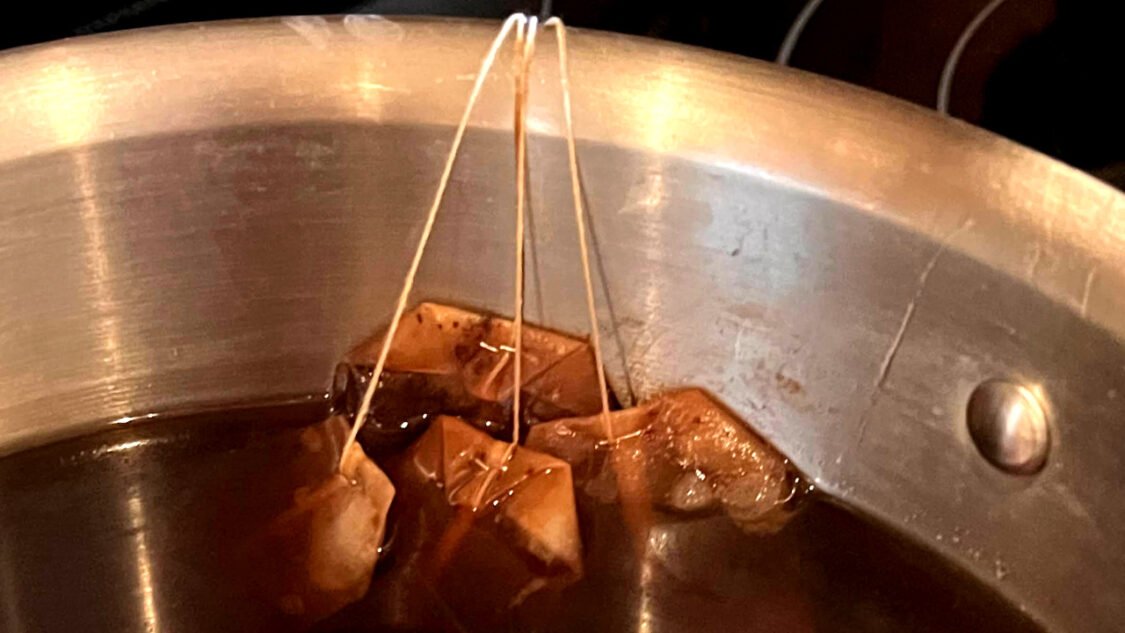
Green Tea’s L-Theanine benefit
Green tea leaves contain L-theanine, an amino acid that is an anxiety reducer and a natural relaxant. Studies show that L-theanine combats caffeine’s stimulatory effects by promoting alpha brain waves, which calm the mind in a similar manner as meditation 30-40 minutes after ingestion.
Additionally L-Theanine ramps up the body’s production of dopamine and serotonin which results in improved memory and cognitive performance.
Studies have shown that when taken together L-theanine and caffeine improved “cognitive performance and mood.” Researchers also believe that polyphenols present in green tea not only deliver health benefits but mitigate negative effects that caffeine may have when consumed alone.
Read more about using green tea in making kombucha in Green Tea vs Black Tea
CaffeIne's Role in Kombucha Fermentation
As you already know, kombucha is produced by a living colony of microbes called a SCOBY and needs food and a warm environment to survive. We provide the “home” and nutrient in the form of the sweetened tea made from tea and sugar.
The kombucha SCOBY consumes the tea and sugar solution as it’s food, producing delicious kombucha as a byproduct. The tea used in making kombucha provides the microorganisms in the SCOBY with nitrogen for their metabolism which allows them to continue growing.
Caffeine has a stimulating effect on the growth of the microorganisms involved in making kombucha. Caffeine and theophylline are also needed for building nucleic acids. Yeast and bacteria break down the caffeine as a key nutrient during fermentation.
Early studies on kombucha believed that the fermentation process doesn’t measurably decrease the caffeine content in the resulting kombucha. Researchers thought the amount of caffeine in initial tea leaves would be the same as in finished kombucha.
A few recent studies have shown a decrease in caffeine content by 40% after three weeks of fermentation. Researchers now believe that caffeine might not be removed completely during fermentation, but its concentration declines significantly after 21 days.
How to Make Kombucha with Less Caffeine
As we have seen the caffeine content in finished kombucha is reduced due to the natural processing of the bacteria and yeast. Additionally there are some steps you can take to further reduce the caffeine content of your kombucha.
Adjust steeping time. Steeping time is key to both the flavor and caffeine content of a black or green tea. Reduce the steeping time to reduce caffeine content. Steep for 5 to 10 minutes for a balance of flavor and caffeine content.
Use Cooler steeping water. The temperature of water initially used to steep the tea affects how quickly the tea compounds dissolve into the water. Let the water cool a bit before you steep the tea to extract less caffeine.
Reduce the caffeine in your initial tea. opt to start with lower caffeinated teas. If you notice fermentations begin to take longer or are not becoming as acidic, make a batch of kombucha using fully caffeinated tea to bring the SCOBY back to good health. Continue brewing with your lower caffeinated SCOBY and starter tea.
Mix in some naturally decaffeinated or lower caffeinated tea and use some herbal teas/tisanes. White and green tea are lesser oxidized versions of black tea and contain less caffeine. It is best to add at least 25% black tea to ensure strong fermentation and long term health of your culture. Alternatively, you can brew every fourth batch with 100% black tea to reinvigorate the SCOBY.
Check out my list of the best tea for making kombucha
Remove most the caffeine. You can easily reduce the caffeine content of black tea by steeping them in boiling water for 30 seconds. This will pull out much of the caffeine. Use the bags normally to make your kombucha.
Ferment longer. this will enable the bacteria and yeast to consume more of the caffeine. Keep in mind this will result in kombucha with a stronger vinegar character.
Remember AVOID use of most store bought decaffeinated teas as they have been chemically treated, even “naturally decaffeinated” teas are damaged and covered in toxic residues. Look for decaf teas with carbon dioxide or water processing instead of methyl chloride decaffeination, which can disrupt fermentation.
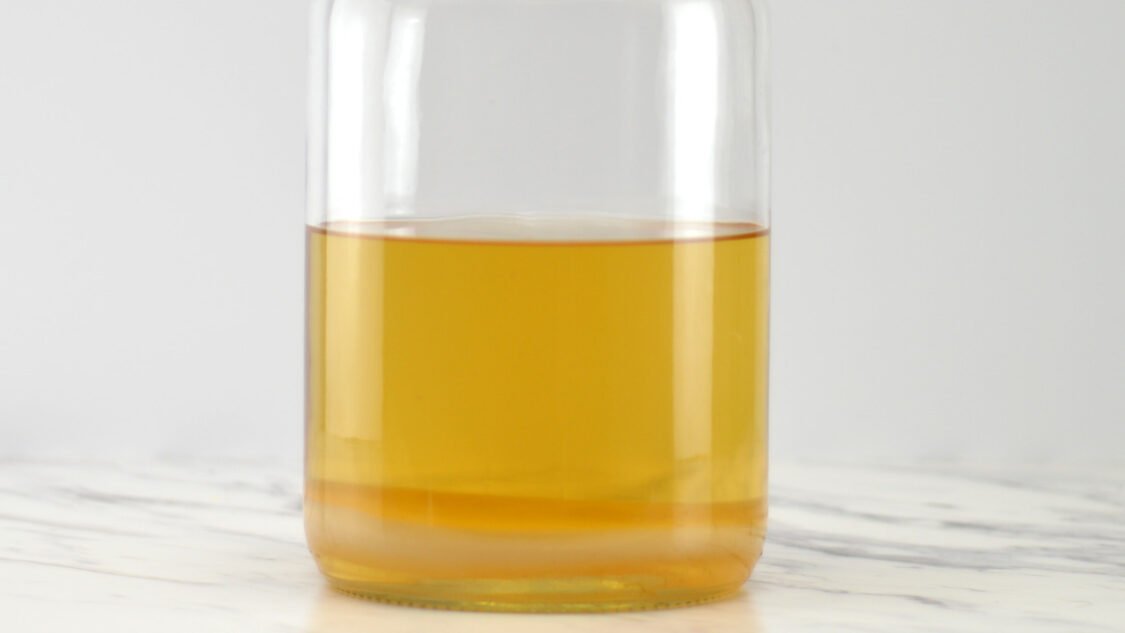
Estimating Caffeine in homemade kombucha
When making homemade kombucha, the amount of tea used to make the sweetened tea (which will be turned into kombucha) is less than if you were brewing a cup of tea to drink so there will be less caffeine in the finished kombucha.
Here’s how to estimate how much caffeine in your kombucha:
For 1 a gallon batch kombucha, you only 16 grams (8 teaspoons) of loose leaf tea or 8 tea bags. Compare this with the 32 grams (16 teaspoons) of tea needed to make tea to drink. By the nature of the kombucha recipe, you are adding significantly less caffeine right from the start.
We can employ some quick math, to determine the approximate caffeine content of your kombucha. Remember that this is just an approximation since steeping time and temperature along with fermentation time, temperature and duration all affect final caffeine levels.
For this example, I will use the standard 40 mg of caffeine per tea bag of black tea brewed for 3-5 minutes. This will put us at about 329 mg per gallon prior to fermentation. The fermentation process naturally reduces the caffeine content.
There are mixed opinions on the exact amount but a common rule of thumb is that finished kombucha will be reduced to 1/3 of its original caffeine content. So following this rule, it will put your kombucha at 106 mg/gallon.
This equates to about 6.5mg caffeine per 8 oz (1 cup) serving. That compares with decaf coffee at 7mg per cup.
What Kombucha Has the Most Caffeine?
Store-bought kombuchas have a caffeine content ranging from 7-80 mg per 8oz serving. For comparison, 100 mg is the caffeine content of a typical cup of coffee.
Here is a comparison of the caffeine content of a variety of commercially produced kombuchas:
Does synergy kombucha have caffeine?
Yes. GT considers all of their flavors “naturally decaffeinated” from the the fermentation process. Each flavor contains about 4mg to 8mg of caffeine per 8-ounce serving.
Does Health-Ade kombucha have caffeine?
Yes. Health-Ade Kombucha contains slightly more caffeine than most brands at anywhere between 8mg-15mg of caffeine per serving depending on the flavor,
Brew Dr kombucha caffeine content
There is less than 15 mg of caffeine in bottle of Brew Dr. Kombucha which is about 6-7 grams per 8 oz serving.
Humm kombucha caffeine content
Humm Kombucha has about 14 mg caffeine per 8 oz serving.
Kevita Kombucha caffeine level
KeVita Masterbrew Kombucha is a kombucha brand owned by PepsiCo. All of the brand’s Masterbrew kombuchas contain far more caffeine than others on the market, averaging around 68 mg per 15.2oz serving.
Does Rise Kombucha have caffeine?
Yes, Rise Kombucha has about 8mg of caffeine per 8 oz serving, depending on flavor.
Does GT’s Kombucha have caffeine?
Yes. GT’s Kombucha contains about 4mg to 8mg of caffeine per 8oz serving. However, the same amount of GT’s Coffee Kombucha contains 40mg of caffeine!
Sources:
- Chakravorty S, et al. (2016). Kombucha tea fermentation: Microbial and biochemical dynamics. DOI:
http://doi.org/10.1016/j.ijfoodmicro.2015.12.015 - Institute of Medicine. (2001). Chapter 2: Pharmacology of caffeine. Caffeine for the sustainment of mental task performance: Formulations for military operations. Washington, D.C.: National Academies Press.
https://www.ncbi.nlm.nih.gov/books/NBK223808/ - Jayabalan R, et al. (2014). A review on kombucha tea—microbiology, composition, fermentation, beneficial effects, toxicity, and tea fungus. DOI:
https://onlinelibrary.wiley.com/doi/full/10.1111/1541-4337.12073 - Keeping your gut in check: Healthy options to stay on tract. (2017).
https://newsinhealth.nih.gov/2017/05/keeping-your-gut-check - Krietsch B. (2019). Is kombucha healthy? Here’s what experts say.
https://time.com/5516472/is-kombucha-healthy/ - Marsh AJ, et al. (2014). Sequence-based analysis of the bacterial and fungal compositions of multiple kombucha (tea fungus) samples. DOI:
https://doi.org/10.1016/j.fm.2013.09.003 - Martínez Leal J, et al. (2018). A review on health benefits of kombucha nutritional compounds and metabolites. DOI:
https://doi.org/10.1080/19476337.2017.1410499 - Spilling the beans: How much caffeine is too much? (2018).
https://www.fda.gov/consumers/consumer-updates/spilling-beans-how-much-caffeine-too-much - Ursell L, et al. (2012). Defining the human microbiome. DOI:
https://dx.doi.org/10.1111%2Fj.1753-4887.2012.00493.x - Wang X, et al. (2005). Effect of microbial fermentation on caffeine content of tea leaves. DOI:
https://doi.org/10.1021/jf050495h
Helping you learn to brew kombucha, find inspiration for new kombucha flavors and use kombucha to make kombucha mocktails

